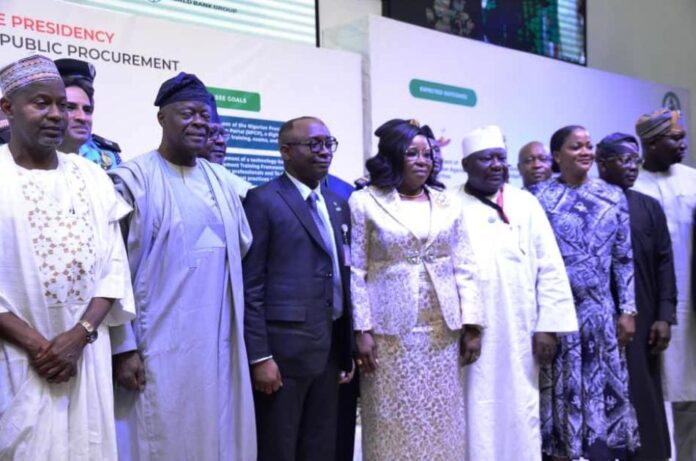In a move widely hailed as a major step towards institutional reform, the Bureau of Public Service Reforms (BPSR) has officially endorsed the newly launched Sustainable Procurement, Environmental and Social Standards Enhancement (SPESSE) Portal—an innovation designed to deepen transparency, professionalism, and accountability in Nigeria’s public procurement system.
The endorsement, which came during a formal unveiling held on May 1, 2025, at the Universal Basic Education Commission (UBEC) headquarters in Abuja, signals strong institutional backing for a platform that could redefine how public resources are managed in Nigeria. The SPESSE Portal, developed through the joint efforts of the Bureau of Public Procurement (BPP) and its technical partners, is part of a World Bank-supported initiative aimed at building capacity across procurement, environmental, and social standards within government institutions.
Speaking at the event, the Director-General of BPSR, Mr. Dasuki Arabi, described the portal as a landmark intervention that moves beyond digitisation to enforce global best practices in public procurement. “This initiative is not just about unveiling a digital platform—it is a bold step toward aligning our procurement processes with global best practices,” Arabi said. He emphasized that the SPESSE Portal is structured to foster inclusiveness and ensure that both state and non-state actors have equal access to procurement opportunities.
The SPESSE Portal is envisioned as a tool for strengthening transparency by making procurement processes more open and trackable, thereby reducing leakages and inefficiencies. It is also expected to boost the participation of small and medium enterprises (SMEs) in government contracting, encouraging broader economic inclusion while building local capacity.
Embedded within the framework of President Bola Ahmed Tinubu’s Renewed Hope Agenda, the portal represents a new chapter in the government’s efforts to enhance service delivery and enforce accountability. According to Arabi, the BPSR has already started integrating procurement reform metrics into induction trainings for new heads of agencies, and BPP compliance now features prominently in Ministries, Departments, and Agencies (MDAs) performance assessments.
He further recommended sustained awareness, dedicated funding, and strict compliance as necessary steps to guarantee the sustainability of the SPESSE initiative. Arabi also advocated for the adoption of a robust monitoring and evaluation mechanism that can track progress and ensure the platform’s objectives are being met.
The certification portal is available to all Nigerian procurement practitioners and provides a tailored pathway for users to determine their eligibility and the necessary requirements for each certification level. The certification model draws from international procurement standards, adjusted to reflect the local context and capacity-building needs of Nigerian professionals.
Analysts say the SPESSE Portal, if fully embraced and properly implemented, could significantly curb procurement-related corruption and inefficiency—two issues that have long plagued Nigeria’s public sector. With BPSR’s endorsement, expectations are now high that government agencies will take full advantage of the platform to entrench professionalism and ethics in public spending.
This development not only represents a strategic push for transparency and fiscal discipline, but also stands as a strong signal to the international community of Nigeria’s resolve to reform and modernize its governance architecture.

